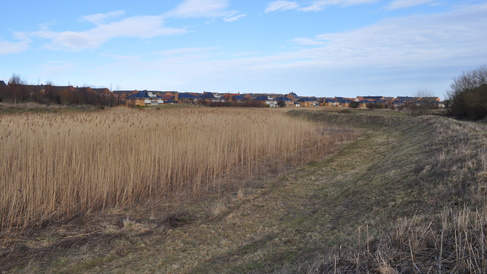
A new 3 year project funded by EPSRC was launched at the beginning of this year ( January 2013) to develop fresh strategies for managing urban flood risk as part of wider, integrated urban planning intended to achieve environmental enhancement and urban renewal in which multiple benefits of creating blue-green cities are rigorously evaluated and understood.
The focus is to better understand the connectivities:
i) between individual components in flood risk management systems, such as the coupled interactions between surface and subsurface drainage networks and SuDS features;
ii) between these elements and their interface with other infrastructure, to achieve more integrated urban planning , and;
iii) between the technical and institutional measures adopted for flood risk management and the attitudes and behavioural responses to them of stakeholder groups, urban communities and individual citizens.
The project is intending to develop ways of driving new resilient urban forms and fabrics through delivering measures to manage flood events sustainability while enhancing urban life; providing scope for radical solutions under new build, and realising possibilities for improving existing performance of flood and urban drainage measures through retrofit and urban renewal. A strong focus will be on comprehensively evaluating flood risk management options in terms of their wider benefits and costs. The goal is to redefine aspects of the urban fabric which can deliver multi-functional services whilst enhancing effective deployment of flood risk mitigation interventions by exploring how we can achieve urban change that is socially equitable, economically viable and ecologically beneficial through the design of radically different urban landscapes to deliver these benefits in an uncertain and changing future.
In addition to the Centre for Sustainable Development at Cambridge University the work involves research teams at the following UK Universities: Heriot Watt University, Newcastle University, Leeds University, Nottingham University , Cranfield University, the London School of Economics and the University of the West of England. Dr Dick Fenner of the Centre for Sustainable Development is leading two work packages in this programme which will study the interaction of flood risk management elements with the wider urban systems and evaluate the multiple benefits of flood risk management interventions in a wide performance matrix . In addition a demonstration study based on two urban sites with contrasting topographies, urban densities and socio-economic conditions in medium sized cities will be used to develop and implement new approaches to flood risk management.
Further details from: Dr R.A.Fenner (raf37@cam.ac.uk)
Photo credit: Malcolm Morgan
